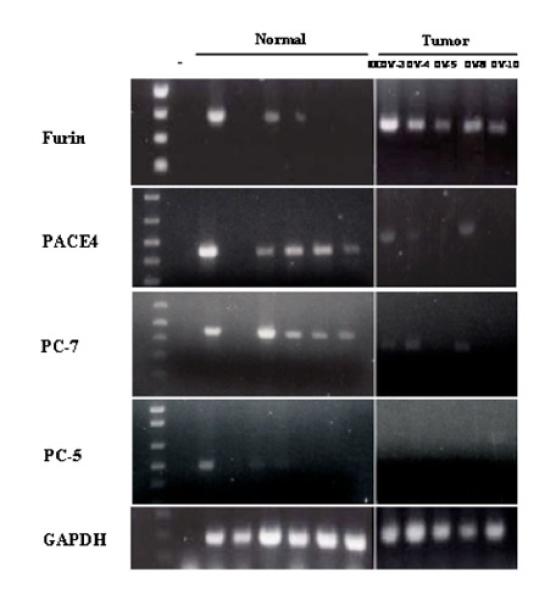This Fox Chase professor participates in the Undergraduate Summer Research Fellowship.
Learn more about Research Volunteering.


This Fox Chase professor participates in the Undergraduate Summer Research Fellowship.
Learn more about Research Volunteering.
Assistant Research Professor
My research interests center in determining the role of a family of nine serine proteases, the proprotein-convertases (PCs) in ovarian tumor progression. Most PCs activate protein precursors after limited proteolysis at the consensus sequence RXR/KR. Many of these precursors are associated with tumor progression, such as growth factors and their receptors, metalloproteinases and adhesion molecules, pointing to a PCs role in regulating tumor progression. For instance, increased expression of these PCs has been correlated with increase histopathological grade and advanced metastatic behavior.
We have determined that increased furin, the prototype of the family, predicts poor survival in ovarian cancer, regardless the specific type of tumor. Moreover, specific blockage of its activity by protein inhibitors and siRNA technology resulted in decreased proliferation and signaling through the insulin-like receptor pathway. Interestingly, a closely related PC, PACE4, also associated with tumor progression in skin and other malignancies, showed an opposite effect in ovarian cancer; more benign and less malignant tumors expressed higher levels of this extracellular protease. In this context, therapies aimed at decreasing ovarian tumor burden should address these differences to exploit this antagonistic effect exerted by these two proteases.
Cukierman E, Bassi, DE. The mesenchymal tumor microenvironment: A drug-resistant niche. Cell Adh Migr. 2012 May 1;6(3):285-96. Epub 2012 May 1. PubMed
Bassi DE, Zhang J, Cenna J, Litwin S, Cukierman E, Klein-Szanto AJ. Proprotein Convertase Inhibition Results in Decreased Skin Cell Proliferation, Tumorigenesis, and Metastasis. Neoplasia. 2010 Jul;12(7):516-26. PubMed
Page RE, Klein-Szanto AJ, Litwin S, Nicolas E, Al-Jumaily R, Alexander P, Godwin AK, Ross EA, Schilder RJ, Bassi DE. Increased expression of the pro-protein convertasefurin predicts decreased survival in ovarian cancer. Cell Oncol. 2007;29(4):289-99. PubMed
Bassi DE, Lopez de Cicco R, Cenna J, Cukierman E, Klein-Szanto AJ. PACE 4 Expression in Mouse Basal Keratinocytes Results in Basement Membrane Disruption and Acceleration of Tumor Progression. Cancer Res. 2005;65:7310-7319. PubMed
Bassi B, Lopez De Cicco R, Mahloogi H, Zucker S, Thomas G, Klein-Szanto AJ. Furin Inhibition Results in Absent or Decreased Invasiveness and Tumorigenicity of Human Cancer Cells. Proc Natl Acad Sci. (USA) 2001;98:10326-10331. PubMed
The following ratings and reviews are based on verified feedback collected from independently administered patient experience surveys. The ratings and comments submitted by patients reflect their own views and opinions. Patient identities are withheld to ensure confidentiality and privacy. Learn more about our Patient Experience Ratings.
This Fox Chase professor participates in the Undergraduate Summer Research Fellowship.
Learn more about Research Volunteering.
Patient comments